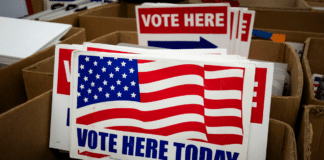A New York appellate court judge strongly reprimanded a man who tried to use an AI-generated avatar to argue his case during a court hearing. The incident, which occurred on March 26, 2025, in the New York State Supreme Court Appellate Division’s First Judicial Department, highlighted growing concerns over the role of artificial intelligence in legal proceedings.
Jerome Dewald, a party in an employment-related legal dispute, submitted a pre-recorded video instead of making a live appearance before the court. The video featured a digitally generated avatar—a clean-cut, professional-looking young man—who began reading Dewald’s prepared arguments.
The moment the avatar began speaking, Justice Sallie Manzanet-Daniels interrupted, visibly disturbed by the artificial nature of the presentation.
Upon being questioned by the judge, Dewald admitted that the person in the video was not real. “I generated that. That’s not a real person,” he said. Justice Manzanet-Daniels responded with evident frustration, stating, “It would have been nice to know that when you made your application. You did not tell me that, sir.”
Dewald attempted to explain that his intention was to make his argument clearer, as he felt less effective at oral presentations. Despite his apology, the court took issue with the lack of transparency and deviation from court procedure.
The judge ultimately allowed Dewald to argue his case live. However, the event has sparked broader discussions about the use of AI tools in the courtroom. Legal professionals are increasingly encountering AI-generated documents, arguments, and even citations—some of which have proven to be fictitious, leading to disciplinary actions against attorneys in other states.
The Dewald case is part of a growing trend that includes a 2023 incident where a lawyer was sanctioned for submitting court filings with AI-fabricated citations. Courts have since stressed the importance of human accountability and clear disclosure when using artificial intelligence in any legal capacity.
As AI technology becomes more accessible, legal experts warn that strict ethical guidelines and transparency will be essential to prevent misuse and preserve the integrity of the judicial process.





